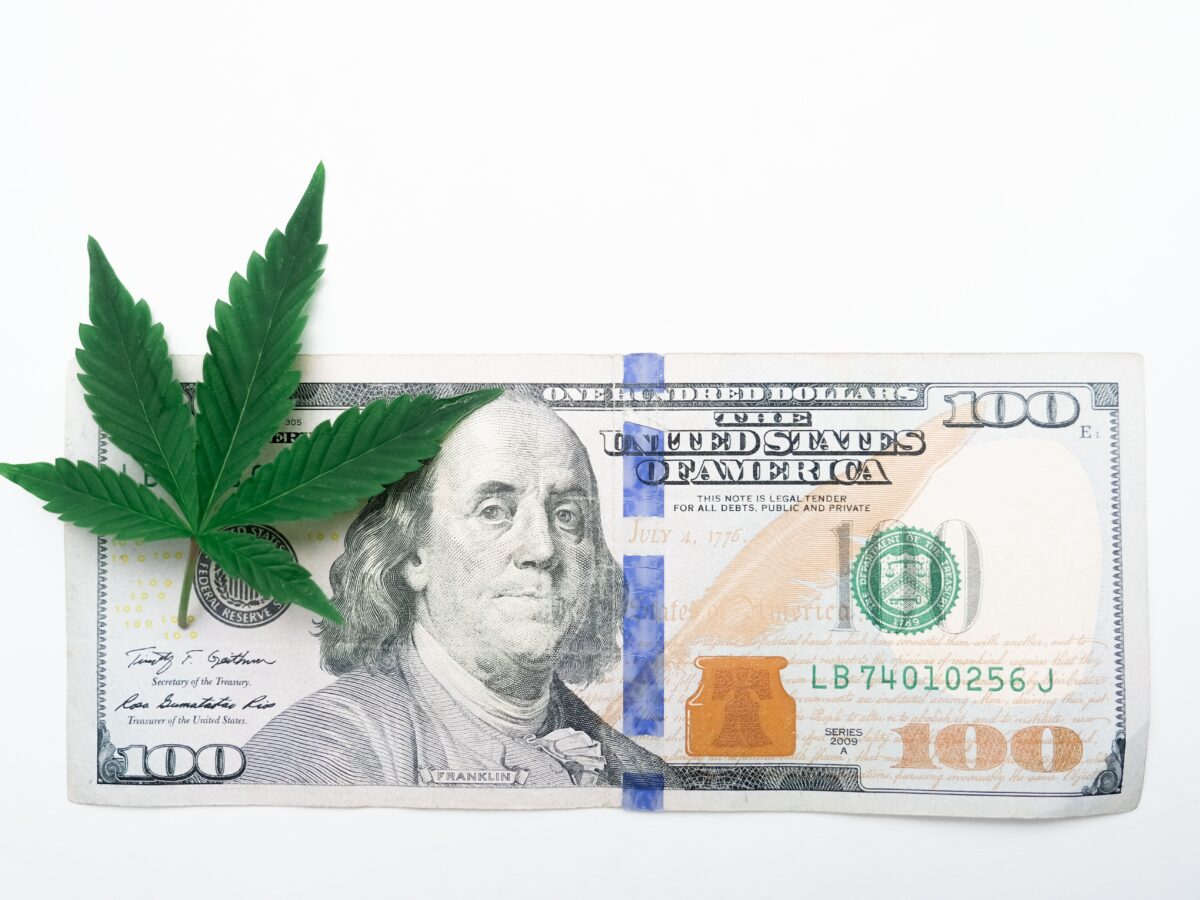
On Sept. 27, the U.S. Senate Committee on Banking, Housing, and Urban Affairs opted to forward the Secure and Fair Enforcement Regulation Banking Act – or SAFER Banking Act – before the full Senate.
The SAFER Banking ACT passed the committee with a 14-9 vote. The legislation was sponsored by Jeff Merkley, an Oregon Democrat, and Steve Daines, a Montana Republican.
The bill, which Senate Majority Leader Chuck Schumer has indicated will receive a vote soon.
“For too long, the federal government has continued to punish marijuana users and business owners – even when doing so is actively harmful to our country,” said the New York Democrat. “This ‘war on drugs’ has turned into a war on people and communities – specifically people and communities of color – and a war on business. This agreement allows cannabis businesses that have traditionally operated in cash to finally have the opportunity to accept credit and debit cards, allowing them to grow their businesses, pay their employees, protect their customers and ensure public safety.”
Different versions of this legislation have been introduced in every Congress since 2013 and the House of Representatives passed it seven times, but to date it was never introduced for consideration by the full Senate until now.
The SAFER Banking Act seeks to exempt proceeds from the sales of marijuana in states where they are legal from regulations that prevent federally insured banks from accepting those funds.
Many transactions for recreational cannabis companies are handled in cash, since current federal law permits regulators to impose penalties and conduct investigations into financial institutions that work with legal cannabis companies. As a result, the cannabis industry is forced to handle large volumes of cash given the prices of the products they typically sell.
Being barred from using credit cards is a major inconvenience and handling large volumes of cash can complicate many aspects of a business, especially payroll and financial planning, but there are also safety concerns for both the businesses and workers.
“Employees become targets for violent robberies that under the most devastating circumstances can turn deadly,” said Ohio’s Sen. Sherrod Brown, the committee’s chairman, during the markup. “Cannabis workers also face challenges proving their income when trying to rent a home or apply for a mortgage.”
Daines noted that despite his co-sponsorship for the bill he opposed the legalization or decriminalization of marijuana, but asserted that the SAFER Banking Act should not be seen as an effort to rewrite federal laws on cannabis usage.
“This bill is about public safety first and foremost,” he stated. “The current all-cash model of legal cannabis businesses makes them targets for theft, for tax evasion, and for organized crime. The key to addressing this risk is by ensuring that all legal businesses have access to the banking system,” Daines said.
Daines added that the bill would also implement reforms regarding financial disclosures and protect companies from being pushed out of the banking system for “political differences.” Daines and other Republicans said they were motivated by preventing a repeat of Operation Choke Point, a Department of Justice initiative under the Obama administration which issued informal and unwritten suggestions to banks to reconsider doing businesses with industries suspected of widespread fraudulent or predatory practices.
Daines emphasized that firearms manufacturers and oil and gas companies would benefit from legislation that prevents the government from pressuring banks to avoid doing business with companies for political reasons.
Benjamin Zachs, the chief operating officer of Fine Fettle Dispensary, one of the Connecticut’s first companies to legally sell recreational cannabis, called the news a welcome step forward.
“I think it’s really great that they can do this,” Zachs said, “but I think there’s still questions on regular insurance and whether you can take credit cards. Will this actually mean we can have more access to banking is the biggest element of that and from the federal side that’s still honestly quite unclear.”
Zachs added that many professionals within Connecticut’s cannabis industry were also excited by the late August announcement that the U.S. Department of Health and Human Services was recommending that the U.S. Drug Enforcement Agency reclassify marijuana from Schedule I to Schedule III under the Controlled Substances Act. This would result in cannabis products moving from one of the most tightly controlled drugs in the country, legally only available in very limited quantities for research, to being on par with prescription only medications like Tylenol with codeine.
“My take is that this is a step in the right direction, don’t get me wrong this is a big deal, but Schedule III is an even bigger deal because of the impacts of 280e going away for the cannabis business,” Zachs added.
280e is the section of the Internal Revenue Code which bans businesses from deducting expenses associated with Schedule I drugs from their taxes.
“Those tax issues are the things that really impact the industry as a whole,” Zachs said. “Our tax rate is just astronomical compared to any other business in the United States.”
Still, the SAFER Banking Act has its opponents on Capitol Hill. Four Republican senators – Pete Ricketts of Nebraska, John Cornyn of Texas, Ted Budd of North Carolina and James Lankford of Oklahoma – voted to fight against Senate passage of the bill.
“The growth of the marijuana industry has already caused THC potency to skyrocket from 2-5% in the 1970s to 99% in many concentrates sold today,” the senators wrote in an open letter. “The significant mental health damage to youth caused by these products will only worsen with the passage of the SAFER Banking Act, as the industry will use new investments to increase potency further and bring in new users, including children. Marijuana use is associated with psychosis, motor vehicle accidents, respiratory problems, and low birth weight.”
“This legislation also compromises the integrity of the United States banking system by giving banks government approval to participate in illegal activity, setting a dangerous new precedent,” the senators continued. “Allowing banking access to a Schedule I drug sets a dangerous legal precedent and will help facilitate money laundering for drug cartels.”
And there is also dissent within the Democrats. Georgia’s Sen. Raphael Warnock was the lone Democrat to vote against the SAFER Banking Act because he said it did nothing to address the fate of “millions of Americans locked up for nonviolent drug offenses.”
Phil Hall contributed to this article.





















